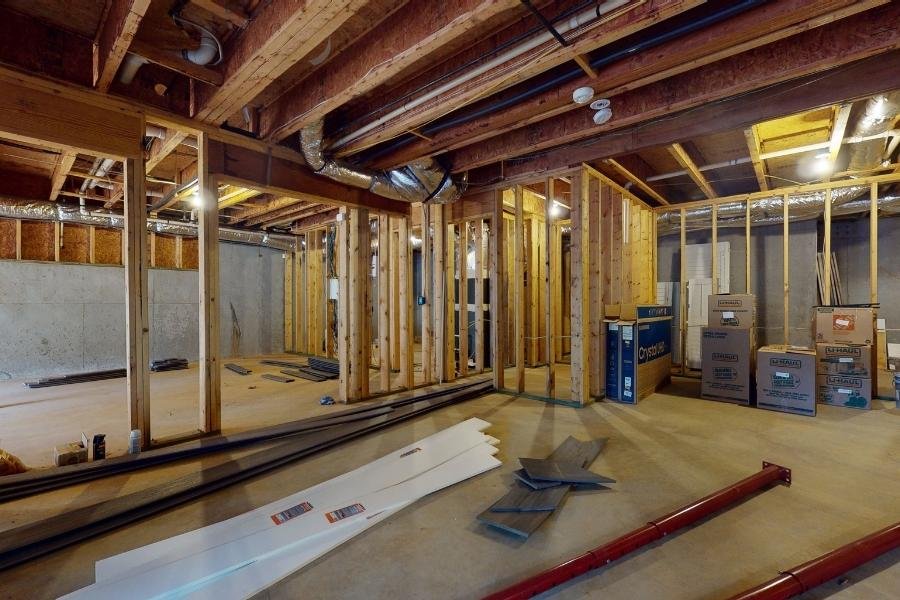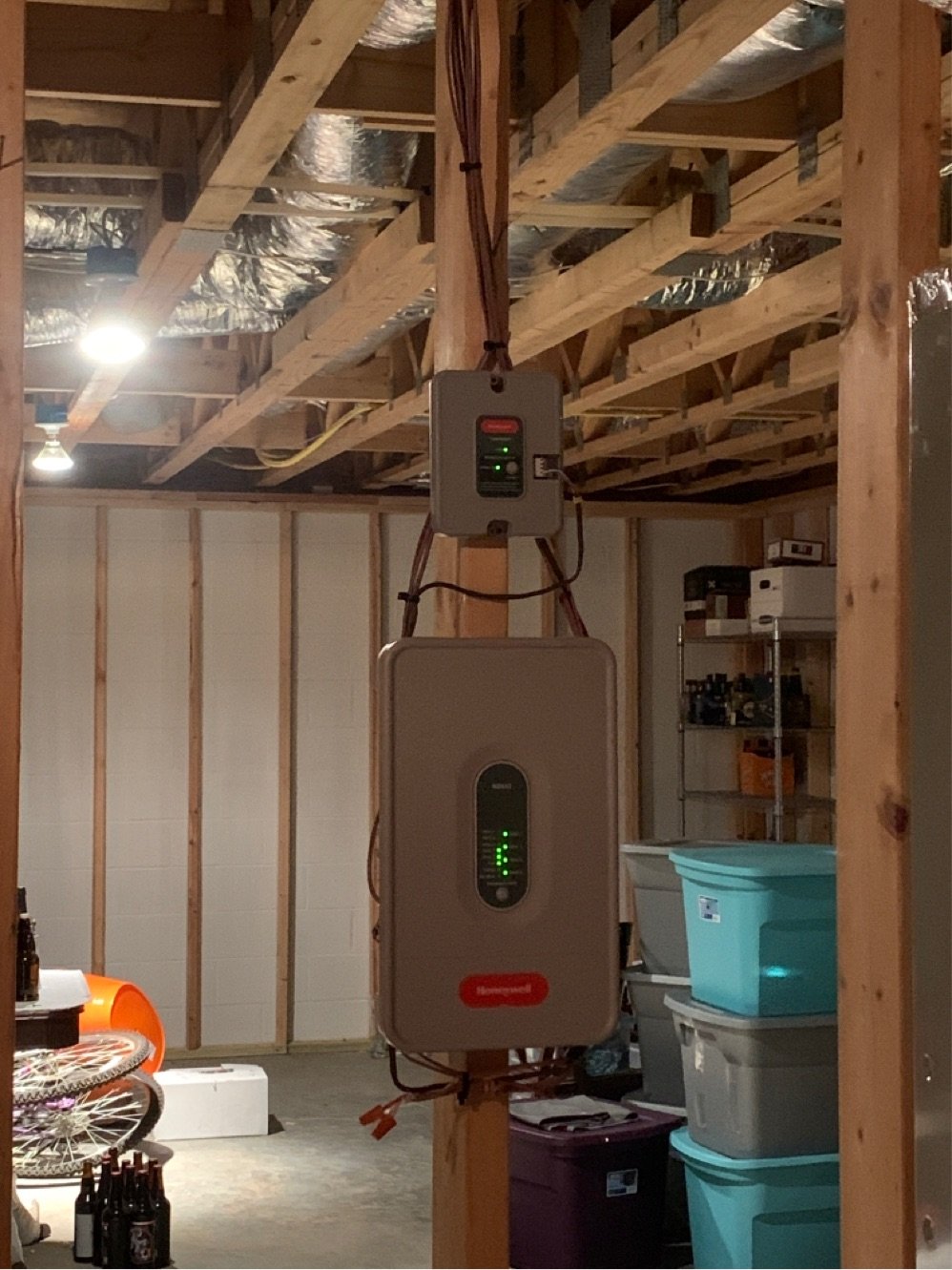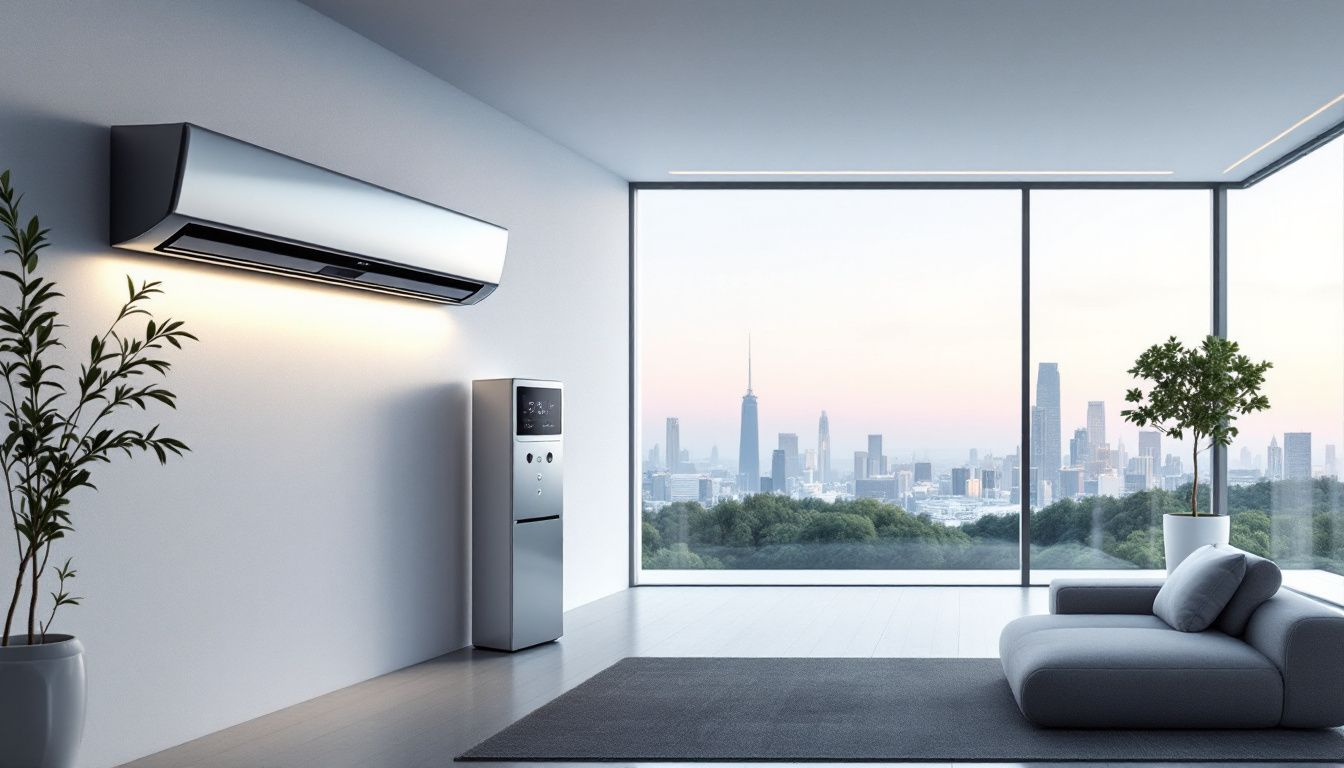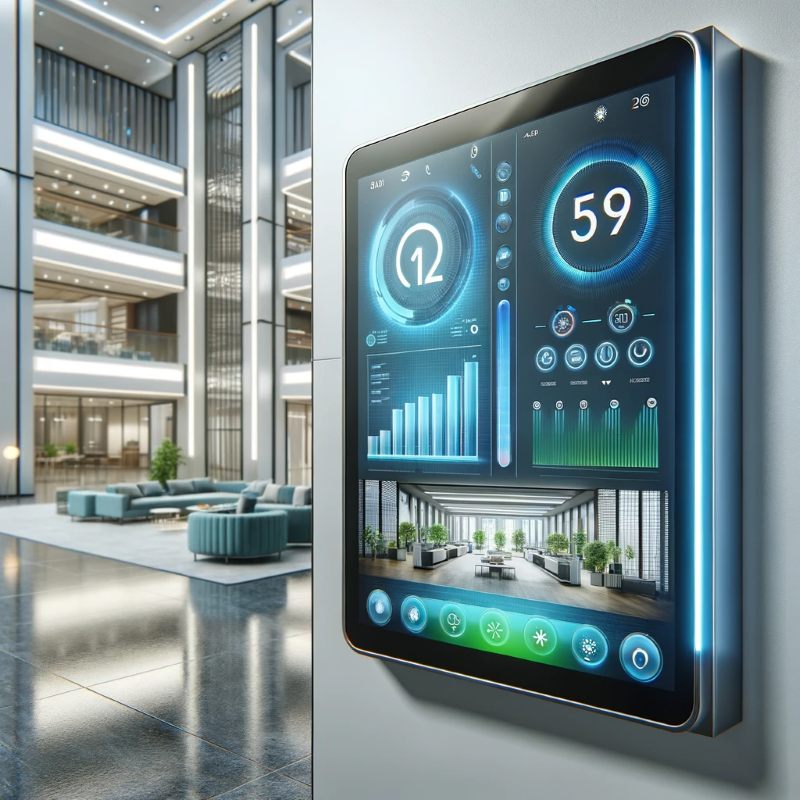Optimal Air Conditioning for Spaces "In The Basement"
For our audience looking to optimize their basement air conditioning, this no-nonsense guide walks you through the essential steps to cooler, more comfortable basement air, tailored to your space’s specific needs—no matter the size or layout challenges.
Key Takeaways
Basements present unique air conditioning challenges, such as excess humidity and poor ventilation which can be managed with the right equipment and strategies like vapor retarders and insulation.
Various AC options for basements include ductless mini-split systems for efficiency and ease of installation, portable units for convenience and flexibility, and extensions of central AC systems for integrated house cooling. The performances of these systems can vary based on the specific conditions of your basement.
To ensure optimal basement temp control, using dehumidifiers in combination with AC units and smart AC controllers can enhance comfort and efficiency, while professional installation and maintenance are crucial for system performance.
Understanding Basement Air Conditioning Challenges
Basements, with their limited ventilation, excess humidity, and insulation issues, pose unique challenges for air conditioning systems. These characteristics can lead to lost efficiency and increased energy consumption if not properly managed. However, with the right approach, these challenges can be effectively managed to achieve optimal climate control.
Excess humidity, often caused by excess moisture, in basements can be a result of several factors, including:
Groundwater seepage
Rainwater
Everyday activities like cooking or showering
Moisture permeating through concrete basement walls and floors from the wet ground
Humidity can act like a controlling father, dictating the overall comfort and air quality in the basement.
To mitigate this diffusion, vapor retarders can be used.
Yet, be aware that opening basement windows to enhance ventilation in humid conditions might cause condensation on cooler basement surfaces, often misinterpreted as leakages. Even the stack effect - a phenomenon where air movement in a building is driven by buoyancy - can draw in moist air through foundational cracks or openings, contributing to the overall humidity issues in the basement.
Ventilation and Air Quality Concerns
Poor ventilation in basements can lead to higher concentrations of indoor pollutants, contributing to the typical ‘basement smell’. Despite their location, basements can affect the air quality of the entire house, not just their own space.
Choosing the right air conditioning unit for the basement can help improve ventilation and air quality. For example, the LG 6,000 BTU 115V window air conditioner is an excellent choice for basements with small windows, supporting spaces up to 260 square feet.
Insulation and Energy Efficiency
Insulating basement foundation walls and headers is instrumental in reducing heat and air leakage in homes, thereby boosting overall energy efficiency. Depending on the basement’s characteristics, homeowners can choose from a variety of insulation options. Closed-cell spray foam insulation is suitable for basements with uneven surfaces and pre-existing moisture issues, providing a robust air seal. For smaller basements with smooth wall surfaces, rigid board insulation is a good choice as it provides effective insulation without taking up much space.
If the basement is dry and already has a wooden frame wall structure, batt insulation is a suitable option for a finished basement. Sealing basement walls and floors not only improves air quality but also creates a more energy-efficient world within your home, bolstering long-term moisture control.
Top Basement AC Solutions
Considering air conditioning solutions for basements, several options are available. Central AC systems, ductless mini-split systems, and portable air conditioners all offer unique benefits and can be tailored to suit different basement sizes and configurations.
Just like a well-directed film, the right AC system can provide a clear and comfortable environment.
Ductless Mini-Split Systems
Ductless mini-split systems are a cost-effective and energy-efficient solution for basement climate control. These systems eliminate ductwork, reducing energy loss and increasing energy efficiency compared to traditional systems. They often come with Energy Star certification and energy-saving features to optimize temperature control.
Moreover, mini-split systems only require a small hole for the connecting pipe, simplifying installation in spaces like basements with very small windows. These systems also ensure precise comfort control, contributing to better air quality and temperature management.
Portable Air Conditioners
Portable air conditioners, also known as portable ACs, are a user-friendly option for adding air conditioning to medium rooms, such as basement spaces. They are energy-saving and often feature adjustable thermostats and timers, enhancing their convenience and efficiency as a portable AC unit.
However, there are some limitations to consider. The physical size of portable air conditioners can present potential space constraints, and there’s a need for a hose to pump hot air released outside.
Central AC System Extension
Extending the central AC system’s ductwork to include the basement is another viable option, allowing integration with the whole-house climate control system. However, this can be a costly and difficult process, especially if the basement is not already equipped with ducts. This can ensure that all scenes within the basement are evenly cooled.
Enhancing Basement Cooling with Dehumidifiers
Dehumidifiers can significantly transform the efficiency of basement cooling. By addressing humidity issues, dehumidifiers can improve air quality and make air feel cooler, enhancing comfort levels. A dehumidifier can breathe new life into the soul of your basement, making it a more comfortable space.
Additionally, dehumidifiers can:
Make homes more energy-efficient by facilitating quicker cooling and longer-lasting comfort in air-conditioned basements
Pairing a dehumidifier with an air conditioner leads to more effective and efficient basement cooling, as dry air is easier to cool than moist air
Reduced humidity levels can also decrease the workload on air conditioning units, translating into energy savings and decreased wear on the AC system.
Smart AC Controllers and Thermostats for Basements
In the modern era, smart AC controllers and thermostats provide an advanced solution for basement air conditioning. These devices can listen to your commands and automate the air conditioning process with features like schedules, geofencing, and Comfy Mode, enhancing comfort and potentially increasing energy savings.
Smart AC systems offer seamless integration with smart home devices and systems, allowing for voice control and remote operation. For example, the GE 12,000 BTU smart window air conditioners and the Pasapair 8000 BTU WiFi Portable Air Conditioner are smart units that provide convenience and ease of use for basement spaces, capable of being controlled remotely through apps. These devices are perfect examples of modern AC unit technology.
Using Manual J Calculation to Determine AC Size
The precise determination of AC size for basements is vital for even distribution and efficient performance of the HVAC system. This is where the Manual J calculation, designed by the Air Conditioning Contractors of America (ACCA), comes in handy.
The calculation process considers a variety of factors, including the square footage of the home, the height of the ceilings, insulation quality, sun exposure, windows, airtightness, and more. For basements, factors such as the number of occupants, including children, windows, usage, and insulation of walls must be accounted for in the Manual J calculation.
Professional Installation, Maintenance, and Repair Services
Professional installation, maintenance, and repair services play a significant role in guaranteeing optimal performance, safety, and longer life of your AC system. Professional installation ensures that the system operates efficiently, meets comfort levels, and adheres to manufacturers’ specifications, which reduces ongoing service costs and extends the lifespan of the unit. A professional director of HVAC services can ensure that the system operates efficiently and meets comfort levels.
Regular maintenance by professionals is essential to tackle issues like dirty filters obstructing airflow, while routine inspections can preemptively identify potential issues, thereby maintaining efficiency and enhancing system performance. Safety during installation and repair is a top priority, with HVAC technicians ensuring that work complies with current electrical codes and they are fully trained in handling high-voltage electrical and gas-burning equipment.
Summary
In conclusion, with a better understanding of the unique challenges of basement air conditioning and the multitude of solutions available, it’s clear that transforming your basement into a cool, comfortable space is entirely achievable. With knowledge, careful planning, and expert assistance, you can overcome the hurdles and enjoy a perfectly air-conditioned basement year-round. With the right solutions, you can enjoy a comfortable basement environment day and night.
Frequently Asked Questions
Can you put an air conditioner in a basement window?
Yes, you can put a portable air conditioner in a basement window. Just make sure the basement is dry to avoid hindering its functionality.
For example, basements in England may have different humidity levels compared to those in other regions.
How do I cool down my basement?
To cool down your basement, try using a dehumidifier to reduce the humidity, and install ceiling fans or a ductless air conditioning system if needed. This can help create a more comfortable environment in your basement. Just as Ulrich Seidl explores various themes in his documentaries, exploring different cooling solutions can help you find the best fit for your basement.
What is the best cooling option for a basement?
The best cooling option for a basement is a ductless mini-split unit, as it is versatile, easy to install, and ideal for basements without central heating and cooling systems. Invest in a unit with enough capacity to heat and cool the space effectively. Sometimes, the best solutions can be a bit weird but highly effective.
Why is my basement so humid?
Your basement might be humid due to rainwater or groundwater seepage, as well as internal sources like unvented clothes dryers and showers. Look into these factors to address the issue. Just as Seidl delves into various themes, understanding the different aspects of basement humidity can help address the issue more effectively.
How can I improve the air quality in my basement?
To improve the air quality in your basement, try enhancing ventilation, using dehumidifiers, and ensuring proper insulation. This can help create a healthier environment for you and your family, making your basement a better place in your world.











